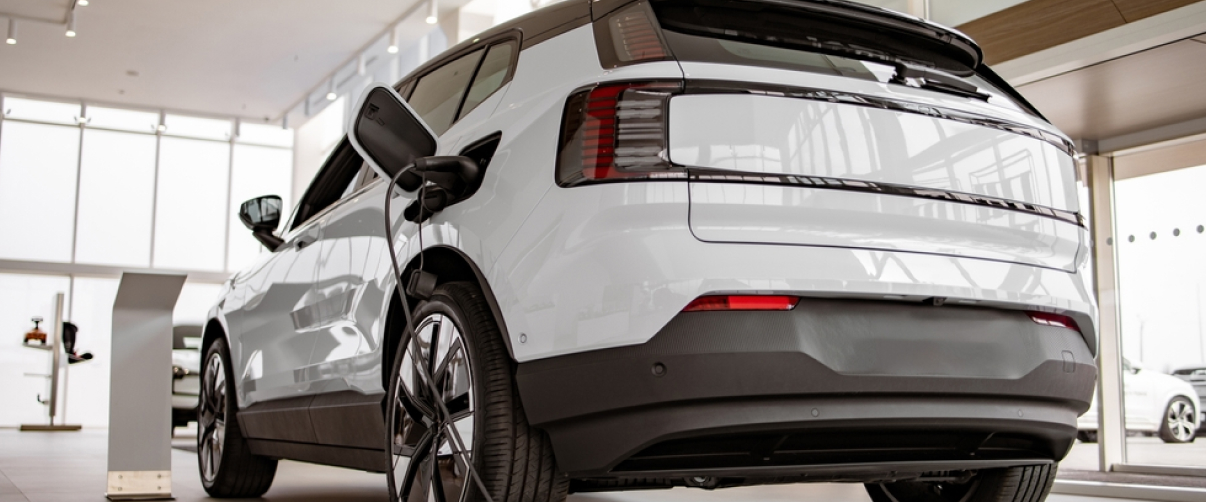In recent years, the automotive industry has witnessed a significant shift towards more sustainable and energy-efficient vehicles. Hybrid and electric SUVs have emerged as popular alternatives to traditional gas-powered models, promising reduced emissions, better fuel economy, and advanced technology. But are they truly better than their gasoline counterparts? Let’s explore the key factors that set these vehicles apart.
Hybrid & Electric SUVs: Are They Better Than Gas-Powered Models?

Environmental Impact
One of the primary motivations for consumers considering hybrid and electric SUVs is the desire to reduce their environmental footprint. Electric vehicles (EVs) and hybrids offer substantial emissions benefits over conventional gasoline and diesel-powered vehicles. They contribute to improved air quality and a reduction in greenhouse gas emissions, which is crucial in the fight against climate change.
EVs, being entirely powered by electricity, produce zero tailpipe emissions. Their overall environmental impact depends on the source of the electricity used to charge them. In regions where renewable energy is prevalent, EVs can significantly lower life cycle emissions. Hybrids, which combine internal combustion engines with electric motors, also produce less pollution than traditional vehicles by optimizing fuel use and utilizing energy that would otherwise be wasted.
Fuel Economy and Cost Savings
Fuel efficiency is a major advantage of hybrid and electric SUVs. Hybrids address the inefficiencies of gasoline engines by recycling energy lost during braking to charge a battery, which then powers an electric motor alongside the gasoline engine. For example, the Environmental Protection Agency estimates that a base model hybrid can achieve impressive mileage by utilizing this technology.
Electric SUVs offer even greater savings on fuel costs. Electricity is generally cheaper than gasoline, and EVs are more energy-efficient. On average, an EV can travel over 100 miles using 25-40 kWh, depending on driving conditions. This translates to significant fuel cost reductions over time.
Maintenance and Long-term Ownership
When it comes to maintenance, electric SUVs have an edge due to their simpler mechanics. They have fewer moving parts, which means less wear and tear and lower maintenance costs. There’s no need for oil changes, and components like regenerative braking systems extend the life of brake pads.
Hybrids, while more complex than pure electric vehicles, still offer maintenance advantages over traditional gas-powered cars. They tend to have longer-lasting components and can save owners money on routine maintenance.
Driving Experience and Convenience
Range anxiety has been a common concern with electric vehicles; however, advancements in battery technology have extended the range of modern EVs significantly. Moreover, the expanding network of charging stations has made it more convenient for EV owners to recharge on the go. In fact, there are now over 60,000 public charging stations across the country, offering flexibility and ease of access.
Hybrids eliminate range anxiety altogether by combining an electric motor with a gasoline engine. This means drivers can enjoy improved fuel efficiency without worrying about running out of battery power on long journeys.
Market Trends and Consumer Sentiments
Consumer interest in hybrid and electric SUVs has been on the rise. Hybrid vehicle sales in the United States increased by 33 percent from January to July compared to the previous year, accounting for 11 percent of new car sales. This surge indicates a strong belief in the benefits of these vehicles among consumers. Many see hybrids and EVs as a smart choice right now, balancing environmental concerns with practical driving needs.
Financial Incentives and Energy Security
The initial cost of purchasing a hybrid or electric SUV can be higher than that of a traditional gas-powered model. However, federal tax credits and state incentives can offset these costs significantly. For instance, buyers may be eligible for up to $7,500 in federal tax credits for new EVs and $4,000 for used ones. These incentives, along with savings on fuel and maintenance, make hybrids and EVs financially appealing in the long run.
Additionally, increasing the use of electric and hybrid vehicles enhances national energy security by reducing dependence on petroleum. EVs are powered by a diverse mix of energy sources, including renewables, which strengthens the resilience of the transportation sector against energy supply disruptions.
Conclusion
Hybrid and electric SUVs offer numerous benefits over traditional gas-powered models, including environmental advantages, fuel savings, lower maintenance costs, and modern conveniences. While they may come with a higher upfront price tag, the long-term rewards—both financially and environmentally—are compelling. As technology continues to advance and charging infrastructure expands, hybrid and electric SUVs are poised to become an even more attractive option for consumers seeking efficiency without compromising on performance.











